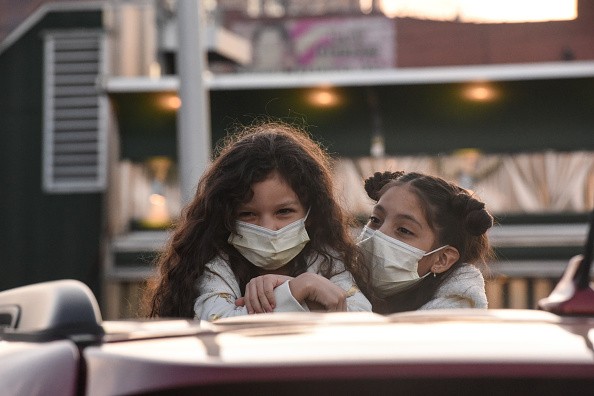Depression Among Children Skyrocket Under COVID-19 Lockdown, Study Says

Depression had increased significantly among children under lockdown, a new study from the University of Cambridge said.
The study, as posted on Disease in Childhood, tracked 168 children with ages 7 to 11 during the U.K. lockdown.
It concluded there was "a significant increase in depression symptoms" among the said group of children if compared to their condition before the lockdown.
The study added that the occurrence of depression among the children has "direct relevance for the continuation of different elements of lockdown policy."
It also highlighted the unintended consequences of lockdown such as complete or partial school closures, reported Science Daily.
To date, however, there is still no direct evidence that this is the case.
Isolation Contributes to Childhood Depression
"What the data suggests is that you can't simply pluck a child from one context and isolate them from it without it having knock-on consequences," developmental psychologist Duncan Astle told CBS Miami.
This feeling of setup makes young people feel alone during the troubling pandemic that could be taking lives of their loved ones.
What's worse is many children can't grieve with friends and family if they lose a loved one.
The study found that there was a statistically significant increase in depression with a medium-to-large effect size, reported Daily Wire.
One example is 17-year-old Hannah Smith who is normally sociable.
"I had, like, no motivation for really anything. And not even, like, school work," she said, detailing how no matter what was in front of her, she struggled to care.
The onset of depression among young people can be deeply troubling not just for them but also their parents.
With more cases similar to the girl's, researchers recommended to incorporate the potential impact of children's mental health in the ongoing response to the global pandemic.
Many Young People 'Seriously Contemplated' Suicide in Lockdown
The university's study is just one of the examples that the COVID-19 lockdown had a negative effect on young people.
Another study in August by the Centers for Disease Control and Prevention (CDC), called the Morbidity and Mortality Weekly Report, said there were at least a quarter of young people aged 18 to 24 who "seriously contemplated" suicide in the prior month.
To make matters harder for them, help isn't accessible at all times.
Associated Press said in a report that lockdown restrictions made visits to the emergency room harder for young people, hindering them from getting the help they need.
Astle noted that Child and Adolescent Mental Health Services have already gone thin even before lockdown. But since schools have either moved online or stopped altogether, the children's routines were disrupted.
On top of that, parents also have new worries concerning limited income or uncertainties of the pandemic.
Children are left to shoulder new problems that they could be unprepared to face, and the lack of beds in hospitals makes their conditions harder to deal with.
"Childhood is a period where mental health may be particularly vulnerable to reduced peer interaction and loneliness," Astle said, urging schools to provide additional resources that help children with low moods.
Subscribe to Latin Post!
Sign up for our free newsletter for the Latest coverage!

















